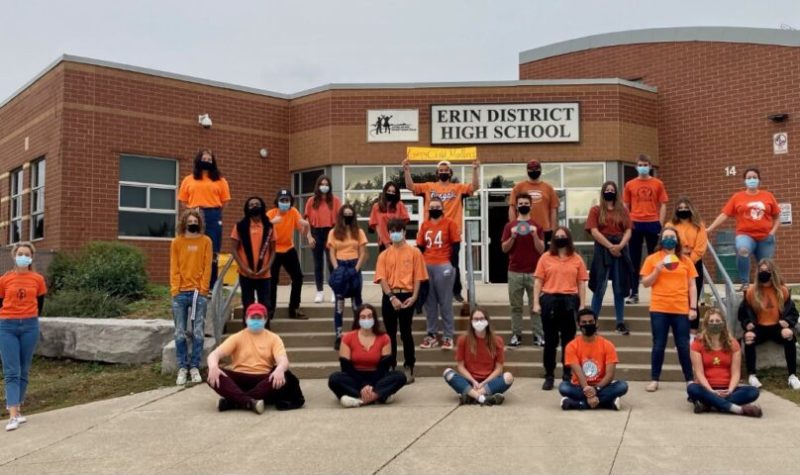Today, people will come together for Orange Shirt Day, where they will recognize and acknowledge the harm residential schools inflicted on Indigenous communities.
Melanie Williamson with Family & Children’s Services of Guelph and Wellington County said the Orange shirt comes from a story of a woman named Phyllis Webstad.
“Who was given a beautiful orange shirt by her grandmother when she was six-year-old, and when she was placed in a residential school they took that shirt away from her, and that was part of the isolation and assimilation of Indigenous people into residential schools,” she said.
Williamson said it’s very important for the organization to call attention to Orange Shirt Day because we understand the legacy of residential schooling with Indigenous people and the communities.
“We recognize our enhanced role in a child welfare system that has caused direct harm and trauma as a result of our involvement in the removal of children and placement in residential schools,” she said.
Williamson said the organization is committed to owning this path and baring responsibility.
“So that we honour the voices of survivors and the legacy of the estimated 6,000 children that died in residential schools,” Williamson said.
Orange Shirt Day is also a chance for educators to engage young people in important discussions regarding residential schools.
Colinda Clyne, Curriculum Leader for First Nations, Métis and Inuit Education at the Upper Grand District School Board said over the years I have purchased lots of different books by Ingenious authors, that are telling stories, many of them picture books, so that they are geared towards engaging in that conversation with children at a young age.
“It might just be as simple as, ‘How would you feel if you had to go to school far away from your parents, your family, how would that feel?’ and maybe […] that’s it for engaging with younger students,” Clyne said.
Clyne said for the older students, “[It’s] talking about what or government policies that were in place that made residential schools a reality, and how did that carry on for so long, and even after the last one closed in 1996, so why are we still seeing impacts today?”
Teachers across the Upper Grand District School Board have been given a range of options to educate their students.
Clyne added that a greater impact can be seen by today’s students going home and telling their parents about Orange Shirt day.


